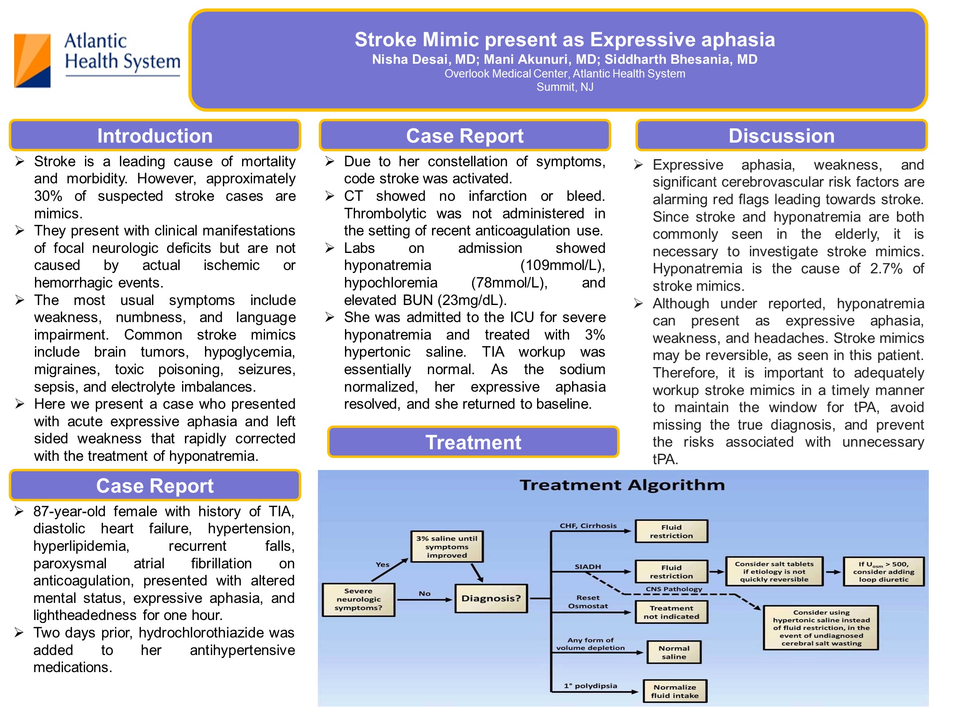Abstract
Introduction: Stroke is a leading cause of mortality and morbidity. However, approximately 30% of suspected stroke cases are mimics. They present with clinical manifestations of focal neurologic deficits but are not caused by actual ischemic or hemorrhagic events. The most usual symptoms include weakness, numbness, and language impairment. Common stroke mimics include brain tumors, hypoglycemia, migraines, toxic poisoning, seizures, sepsis, and electrolyte imbalances. Here we present a case who presented with acute expressive aphasia and left sided weakness that rapidly corrected with the treatment of hyponatremia.
Case Report: 87-year-old female with history of TIA, diastolic heart failure, hypertension, hyperlipidemia, recurrent falls, paroxysmal atrial fibrillation on anticoagulation, presented with altered mental status, expressive aphasia, and lightheadedness for one hour. Two days prior, hydrochlorothiazide was added to her antihypertensive medications. Due to her constellation of symptoms, code stroke was activated. CT showed no infarction or bleed. Thrombolytic was not administered in the setting of recent anticoagulation use. Labs on admission showed hyponatremia (109mmol/L), hypochloremia (78mmol/L), and elevated BUN (23mg/dL). She was admitted to the ICU for severe hyponatremia and treated with 3% hypertonic saline. TIA workup was essentially normal. As the sodium normalized, her expressive aphasia resolved, and she returned to baseline.
Discussion: Expressive aphasia, weakness, and significant cerebrovascular risk factors are alarming red flags leading towards stroke. Since stroke and hyponatremia are both commonly seen in the elderly, it is necessary to investigate stroke mimics. Hyponatremia is the cause of 2.7% of stroke mimics. Although under reported, hyponatremia can present as expressive aphasia, weakness, and headaches. Stroke mimics may be reversible, as seen in this patient. Therefore, it is important to adequately workup stroke mimics in a timely manner to maintain the window for tPA, avoid missing the true diagnosis, and prevent the risks associated with unnecessary tPA.





